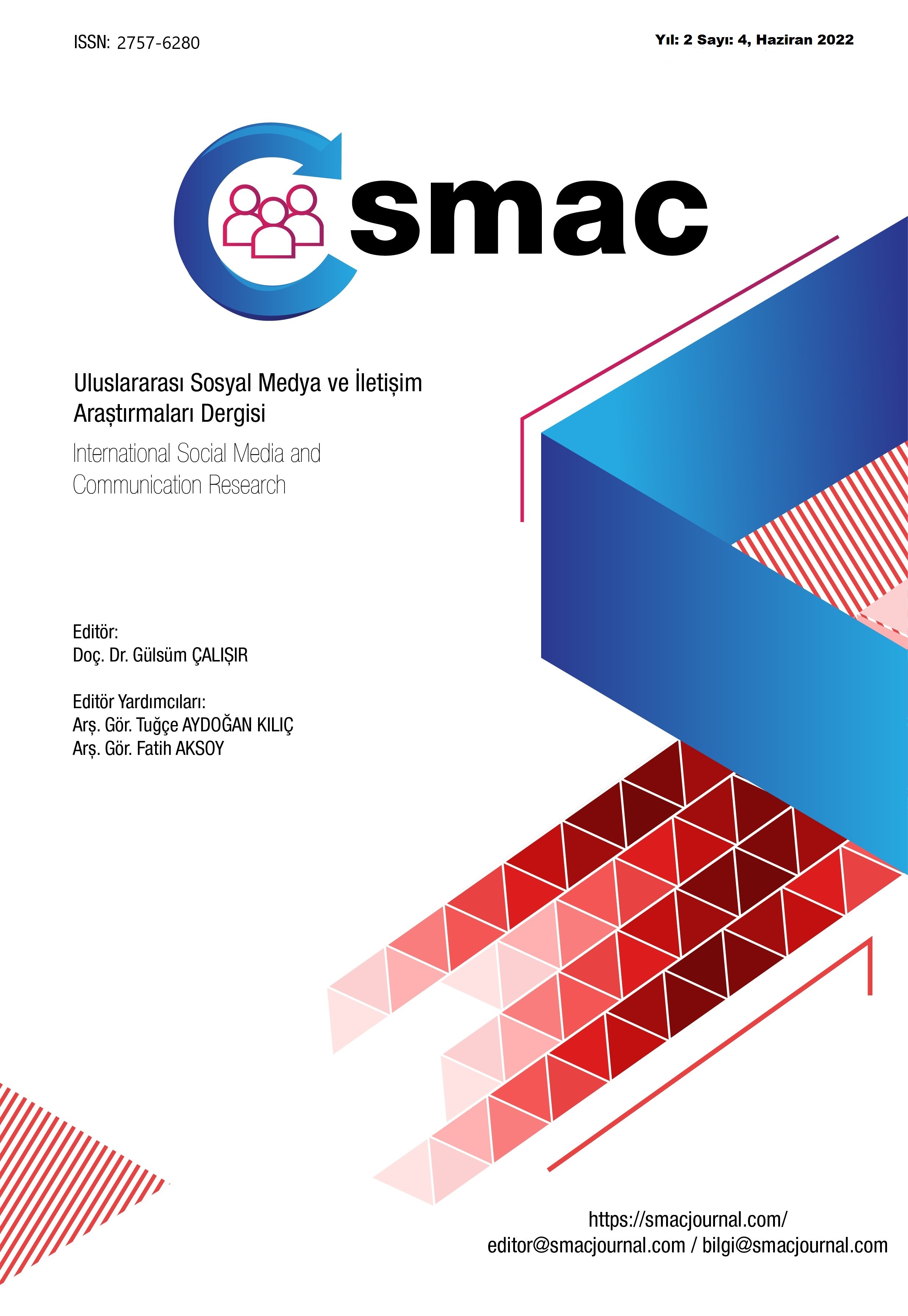Author :
Abstract
Endüstri 4.0 kapsamında ortaya çıkan nesnelerin interneti (IoT), büyük veri, yapay zeka (AI), robot teknolojileri gibi yenilikler tüm sektörlere ve günlük hayata dahil edilerek çeşitli sosyal sorunları çözebilecek bir yapıyı tetiklemiştir. Bu potansiyele yönelik bir hedefin gerçekleşmesi ile ortaya çıkacak olan toplumun, yeni değerlerin ve hizmetlerin yaratıldığı, insanların hayatlarını daha uyumlu ve sürdürülebilir yaşadığı bir yapıya evrileceği tartışılmaktadır. Bu görüşü benimseyen Japonya Hükümeti, teknolojik liderlik yarışında ön plana çıkmak niyetindedir. Bu sebeple Japonya günümüzde dünyanın karşı karşıya kaldığı ekonomik ve sosyal sorunlara yönelik teknolojik gelişmişlik yeteneklerinden yararlanarak ileriye dönük bir strateji yaratımı amacıyla tasarlanmış bir politika programı olan Toplum 5.0’ı sunmuştur. Toplum 5.0 teknolojik sistemleri insanlığın yararına çeşitli alanlara entegre etme planının "hükümet, iş dünyası ve akademi" vizyonuna iliştirilen bir etikettir. Bu çalışma, yaşanan dördüncü sanayi devrimi ve akabinde ortaya çıkan bir strateji olarak Toplum 5.0 gibi kavramlara dair genel bir bakış sunmaktadır. Ayrıca dijitalleşen sanayi ile birlikte teknoloji merkezli ve insan odaklı bir yaklaşım olarak Japon vizyonunun kavramsal arka planına odaklanılmıştır. Günümüz ağ toplumunun devamı olarak ele alınabilme potansiyeli eleştirel bir yaklaşımla incelenmiştir. Bununla birlikte ortaya çıkabilecek olanak ya da riskleri tartışılmıştır.
Keywords
Abstract
Innovations such as the internet of things (IoT), big data, artificial intelligence (AI), robot technologies introduced by Industry 4.0 have triggered a structure that can solve various social problems by being included in all sectors and daily life. It is argued that the society that will emerge with the realization of a goal towards this potential will evolve into a structure where new values and services are created and people live their lives more harmoniously and sustainably. Adopting this view, the Government of Japan intends to come to the fore in the race for technological leadership. In addition, it has presented Society 5.0, a policy program designed to create a forward-looking strategy by utilizing its own technological development capabilities to address the economic and social problems facing the world and Japan today. Society 5.0 is a label attached to the government, business and academia vision of the plan to integrate technological systems into various fields for the benefit of humanity This study provides an overview of concepts such as the fourth industrial revolution and Society 5.0. It focuses on the conceptual background of the Japanese vision as a technology-centered and people-oriented approach along with digital production. The potential to be considered as a continuation of today's network society has been critically examined. However, the possibilities or risks that may arise are discussed.
Keywords
- Castells, M. (2003). Enformasyon Çağı: Ekonomi, Toplum ve Kültür (Cilt 1). İstanbul: Bilgi Üniversitesi Yayınları.
- Castells, M. (2007). Enformasyon Çağı: Ekonomi, Toplum, Kültür-Kimliğin Gücü (Cilt 2). İstanbul: İstanbul Bilgi Üniversitesi Yayınları.
- Castells, M. (2008). Understanding Social Transformation. G. Cardoso, M. Castells, and G. Cardoso (Dü) içinde, The Network Society From Knowledge to Policy (s. 3-23). Massachusetts: Center for Transatlantic Relations, Johns Hopkins U.-SAIS.
- Castells, M. (2016). İletişimin Gücü. (Çev. Kılıç E.).İstanbul: İstanbul Bilgi Üniversitesi Yayınları.
- Castells, M., ve Cardoso, G. (2005). The Network Society From Knowledge to Policy. Washington: Johns Hopkins Center for Transatlantic Relations.
- Demirci Celep, N. (2020). Toplum 5.0: İnsan Merkezli Toplum. Ankara: Türk Eğitim Derneği.
- Dombrowski, U., Richter, T., Krenkel , P. (2017). Interdependencies of Industrie 4.0 and Lean Production Systems - a use cases analysis -. 27th International Conference on Flexible Automation and Intelligent Manufacturing (s. 1061-1068). Modena: Procedia Manufacturing.
- Fukuyama, M. (2017). Society 5.0: Aiming for a New Human-Centered Society. Hitachi Rev., 66(6), 556-557.
- Japan, G. o. (2018). ‘The 5th Science and Technology Basic Plan’. Erişim Tarihi: 22.11.2021. https://www8.cao.go.jp/cstp/kihonkeikaku/5basicplan_en.pdf.
- Keidanren. (2016). ‘Toward Realization of The New Economy and Society’. Erişim Tarihi: 14.11.2021. https://www.keidanren.or.jp/en/policy/2016/029_outline.pdf.
- Keidanren. (2018). ‘Society 5.0 – Co-Creating the Future (Excerpt)’. Erişim: 14.11.2021. http://www.keidanren.or.jp/en/policy/2018/095_proposal.pdf.
- Kılıç, S. Alkan, R. M. (2018). Dördüncü Sanayi Devrimi Endüstri 4.0: Dünya ve Türkiye Değerlendirmesi. Girişimcilik İnovasyon ve Pazarlama Araştırma Dergisi, 2 (3), 2949.
- Kinoshita, M. (2019). Japan on The New Industrial Revolution (Nir): Direction and Its Global Implication for Inclusive and Sustainable Industrial Development; University of Tokyo: Tokyo, Japan
- Bilgi Teknolojileri ve İletişim Kurumu (2021). Toplum 5. 0. Ankara: Sektörel Araştırma ve Strateji Geliştirme Dairesi.
- Michna, A., ve Kmieciak, R. (2020). Open-Mindedness Culture, Knowledge-Sharing, Financial Performance, and Industry 4.0 in SMEs. Sustainability, 12(1), 1-17.
- Office, C. (tarih yok). ‘Society 5.0’. Erişim: (27.06.2021). https://www8.cao.go.jp/cstp/english/society5_0/index.html adresinden alındı
- Oktay Fırat, S., Yurtsever, Ö., İleri, Ç., ve Kıvılcım, İ. (2017). Sürdürülebilir Bir Dünyaya Doğru: Küresel Gündem ve Türkiye. İstanbul: İktisadi Kalkınma Vakfı Yayınları.
- Orhan, A. (2019). Endüstri 4.0 Devrim mi Devinim mi? Iğdır Üniversitesi Sosyal Bilimler Dergisi, 18, 557-576.
- Perez, C. (2002). Technological Revolutions and Financial Capital: The Dynamics Of Bubbles and Golden Ages. Cheltenham: Edward Elgar.
- Stevenson, N. (2007). Medya Kültürleri: Sosyal Teori ve Kitle İletişimi. (Çev. G. Orgon, ve B. Aksoy.) Ankara: Ütopya Yayınlar





